جایزه یادبود نوبل در اقتصاد (به سوئدی: Sveriges riksbanks pris i ekonomisk vetenskap till Alfred Nobels minne) هر ساله توسط آکادمی سلطنتی علوم سوئد به محققان در زمینه اقتصاد اعطا می شود. این یکی از پنج جایزه نوبل است که در سال ۱۸۹۵توسط آلفرد نوبل برای مشارکتهای برجسته در زمینههای فیزیک، شیمی، ادبیات، صلح وفیزیولوژی یا پزشکی اهدا میشود . البته جایزه نوبل اقتصاد، جایزهای است که به یاد آلفرد نوبل توسط بانک مرکزی سوئد به اقتصاددانان اعطا شده و به بیان دقیق و رسمی جزء جوایز نوبل محسوب نمیشود. این جایزه توسط بنیاد نوبل اداره میشود و توسط یک کمیته که متشکل از پنج عضو منتخب آکادمی علوم سلطنتی سوئد هستند به برندگان اعطا می شود . این جایزه از سال ۱۹۶۸ هر ساله به محققان در زمینه اقتصاد اعطا میشود . برای نخستین بار این جایزه در سال ۱۹۶۹ به یان تینبرگن از هلند و رنجر فریچ از نروژ اهدا شد.
هر جایزه شامل یک مدال، یک دیپلم افتخار و جایزه نقدی است که در طول سالهای مختلف مقدار آن متفاوت بودهاست. در سال ۱۹۶۹، مقدار جایزه یان تینبرگن و رنجر فریچ به طور مشترک، ۳۷۵٫۰۰۰ کرون بود که ارزشی برابر با ۲،۸۷۱،۰۴۱ کرون در دسامبر ۲۰۰۷ است.این جایزه در سالانه استکهلم در تاریخ ۱۰ دسامبر برابر با سالگرد مرگ نوبل به برندگان اهدا میشود.
۴۶ جایزهٔ نوبل تا سال ۲۰۱۴ به ۷۵ نفر داده شدهاست. تا سال ۲۰۰۷، نُه جایزه در زمینهاقتصاد کلان بوده، بیش از هر زمینهٔ دیگری در اقتصاد همچنین ۲۸ نفر از برندگان به دانشگاه شیکاگو وابسته بودهاند.
برندگان
۱۹۶۹–۱۹۸۰ · ۱۹۸۱–۱۹۹۰ · ۱۹۹۱–۲۰۰۰ · ۲۰۰۰–۲۰۱۰ · ۲۰۱۱–۲۰۲۰
۱۹۶۹–۱۹۸۰
| سال |
برندگان نوبل اقتصاد |
کشور |
برای |
| ۱۹۶۹ |
 |
راگنار فریش |
 نروژ نروژ |
“for having developed and applied dynamic models for the analysis of economic processes” |
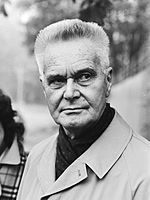 |
یان تینبرگن |
 هلند هلند |
| ۱۹۷۰ |
 |
پل ساموئلسون |
 ایالات متحده آمریکا ایالات متحده آمریکا |
“for the scientific work through which he has developed static and dynamic economic theory and actively contributed to raising the level of analysis in economic science” |
| ۱۹۷۱ |
|
سیمون کوزنتس |
 ایالات متحده آمریکا ایالات متحده آمریکا |
“for his empirically founded interpretation of economic growth which has led to new and deepened insight into the economic and social structure and process of development” |
| ۱۹۷۲ |
|
جان هیکس |
 بریتانیا بریتانیا |
“for their pioneering contributions to نظریه تعادل عمومی and welfare theory.” |
 |
کنت آرو |
 ایالات متحده آمریکا ایالات متحده آمریکا |
| ۱۹۷۳ |
|
واسیلی لئونتیف |
 اتحاد جماهیر شوروی اتحاد جماهیر شوروی |
“for the development of the input-output method and for its application to important economic problems” |
| ۱۹۷۴ |
 |
گونار میردال |
 سوئد سوئد |
“for their pioneering work in the سیاست پولی and economic fluctuations and for their penetrating analysis of the interdependence of economic, social and institutional phenomena.” |
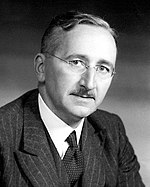 |
فریدریش آوگوست فون هایک |
 بریتانیا/ بریتانیا/  اتریش اتریش |
| ۱۹۷۵ |
 |
لئونید کانتوروویچ |
اتحاد جماهیر شوروی سوسیالیستی |
“for their contributions to the theory of کارایی پارتو of resources” |
|
تیالینگ کوپمانس |
 ایالات متحده آمریکا / ایالات متحده آمریکا /  هلند هلند |
| ۱۹۷۶ |
 |
میلتون فریدمن |
 ایالات متحده آمریکا ایالات متحده آمریکا |
“for his achievements in the fields of consumption analysis, monetary history and theory and for his demonstration of the complexity of stabilisation policy” |
| ۱۹۷۷ |
 |
برتیل اوهلین |
 سوئد سوئد |
“for their pathbreaking contribution to the theory of تجارت خارجی and international سرمایه movements” |
 |
جیمز مید |
 بریتانیا بریتانیا |
| ۱۹۷۸ |
|
هربرت الکساندر سیمون |
 ایالات متحده آمریکا ایالات متحده آمریکا |
“for his pioneering research into the تصمیمگیری process within economic organizations” |
| ۱۹۷۹ |
|
تئودور شولتز |
 ایالات متحده آمریکا ایالات متحده آمریکا |
“for their pioneering research into economic development research with particular consideration of the problems of کشورهای در حال توسعه.” |
|
آرتور لوئیس |
 بریتانیا بریتانیا |
| ۱۹۸۰ |
|
لارنس کلاین |
 ایالات متحده آمریکا ایالات متحده آمریکا |
“for the creation of اقتصادسنجی models and the application to the analysis of economic fluctuations and economic policies” |
۱۹۸۱–۱۹۹۰
| سال |
برندگان نوبل اقتصاد |
کشور |
برای |
| ۱۹۸۱ |
|
جیمز توبین |
 ایالات متحده آمریکا ایالات متحده آمریکا |
“for his analysis of بازار مالیs and their relations to expenditure decisions, employment, production and prices” |
| ۱۹۸۲ |
|
جورج استیگلر |
 ایالات متحده آمریکا ایالات متحده آمریکا |
“for his seminal studies of industrial structures, functioning of markets and causes and effects of public regulation“ |
| ۱۹۸۳ |
 |
جرارد دبرو |
 فرانسه فرانسه |
“for having incorporated new analytical methods into economic theory and for his rigorous reformulation of the theory of نظریه تعادل عمومی“ |
| ۱۹۸۴ |
|
ریچارد استون |
 بریتانیا بریتانیا |
“for having made fundamental contributions to the development of systems of national accounts and hence greatly improved the basis for empirical economic analysis” |
| ۱۹۸۵ |
 |
فرانکو مودیلیانی |
 ایتالیا ایتالیا |
“for his pioneering analyses of saving and of بازار مالیs” |
| ۱۹۸۶ |
 |
جیمز مکگیل بیوکنن |
 ایالات متحده آمریکا ایالات متحده آمریکا |
“for his development of the contractual and constitutional bases for the theory of economic and political تصمیمگیری“ |
| ۱۹۸۷ |
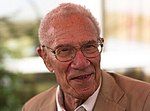 |
رابرت سولو |
 ایالات متحده آمریکا ایالات متحده آمریکا |
“for his contributions to the theory of economic growth” |
| ۱۹۸۸ |
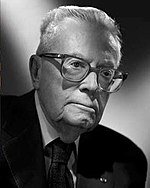 |
موریس آلیاس |
 فرانسه فرانسه |
“for his pioneering contributions to the theory of markets and efficient utilization of resources“ |
| ۱۹۸۹ |
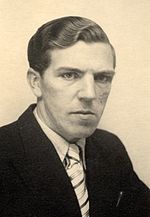 |
ترگیف هاولمو |
 نروژ نروژ |
“for his clarification of the probability theory foundations of اقتصادسنجیs and his analyses of simultaneous economic structures” |
| ۱۹۹۰ |
|
هری مارکوویتز |
 ایالات متحده آمریکا ایالات متحده آمریکا |
“for their pioneering work in the theory of اقتصاد مالی“ |
|
مرتون میلر |
 ایالات متحده آمریکا ایالات متحده آمریکا |
 |
ویلیام شارپ |
 ایالات متحده آمریکا ایالات متحده آمریکا |
۱۹۹۱–۲۰۰۰
| سال |
برندگان نوبل اقتصاد |
کشور |
برای |
| ۱۹۹۱ |
|
رونالد کوز |
UK} |
“for his discovery and clarification of the significance of هزینه معاملهs andproperty rights for the institutional structure and functioning of the economy” |
| ۱۹۹۲ |
 |
گری بکر |
 ایالات متحده آمریکا ایالات متحده آمریکا |
“for having extended the domain of microeconomic analysis to a wide range of human behaviour and interaction, including non-market behaviour” |
| ۱۹۹۳ |
 |
رابرت فوگل |
 ایالات متحده آمریکا ایالات متحده آمریکا |
“for having renewed research in economic history by applying economic theory and quantitative methods in order to explain economic and institutional change” |
|
داگلاس نورت |
 ایالات متحده آمریکا ایالات متحده آمریکا |
| ۱۹۹۴ |
|
جان هارسانی |
 ایالات متحده آمریکا ایالات متحده آمریکا |
“for their pioneering analysis of equilibria in the نظریه بازیها.” |
 |
جان فوربز نش |
 ایالات متحده آمریکا ایالات متحده آمریکا |
 |
راینهارد سیلتن |
 آلمان آلمان |
| ۱۹۹۵ |
|
روبرت امرسون لوکاس |
 ایالات متحده آمریکا ایالات متحده آمریکا |
“for having developed and applied the hypothesis of rational expectations, and thereby having transformed macroeconomic analysis and deepened our understanding of economic policy” |
| ۱۹۹۶ |
|
جیمز میرلس |
 بریتانیا بریتانیا |
“for their fundamental contributions to the economic theory of incentives under asymmetric information”[۳۸] |
|
ویلیام ویکری |
 ایالات متحده آمریکا ایالات متحده آمریکا
 کانادا کانادا |
| ۱۹۹۷ |
 |
روبرت مرتون |
 ایالات متحده آمریکا ایالات متحده آمریکا |
“for a new method to determine the value of derivatives.” |
 |
مایرون اسکولز |
 کانادا کانادا
 ایالات متحده آمریکا ایالات متحده آمریکا |
| ۱۹۹۸ |
 |
آمارتیا سن |
 هند هند |
“for his contributions to welfare economics“ |
| ۱۹۹۹ |
 |
رابرت ماندل |
 کانادا کانادا |
“for his analysis of سیاست پولی and سیاست مالی under different نرخ ارزregimes and his analysis of optimum currency areas” |
| ۲۰۰۰ |
 |
جیمز ژوزف هکمن |
 ایالات متحده آمریکا ایالات متحده آمریکا |
“for his development of theory and methods for analyzing selective samples” |
 |
دانیل مکفادین |
 ایالات متحده آمریکا ایالات متحده آمریکا |
“for his development of theory and methods for analyzing discrete choice“ |
۲۰۰۱–۲۰۱۰
| سال |
برندگان نوبل اقتصاد |
کشور |
برای |
| ۲۰۰۱ |
 |
جرج اکرلوف |
 ایالات متحده آمریکا ایالات متحده آمریکا |
“for their analyses of markets with asymmetric information“ |
 |
مایکل اسپنس |
 ایالات متحده آمریکا ایالات متحده آمریکا |
 |
جوزف استیگلیتز |
 ایالات متحده آمریکا ایالات متحده آمریکا |
| ۲۰۰۲ |
 |
دانیل کاهنمن |
 اسرائیل اسرائیل
 ایالات متحده آمریکا ایالات متحده آمریکا |
“for having integrated insights from psychological research into economic science, especially concerning human judgment and decision-making under uncertainty” |
 |
ورنون اسمیت |
 ایالات متحده آمریکا ایالات متحده آمریکا |
“for having established laboratory experiments as a tool in empirical economic analysis, especially in the study of alternative market mechanisms” |
| ۲۰۰۳ |
 |
رابرت انگل |
 ایالات متحده آمریکا ایالات متحده آمریکا |
“for methods of analyzing economic سری زمانی with time-varyingvolatility (خودکاهش شرطی واریانس ناهمسانی)” |
 |
کلایو گرینجر |
 بریتانیا بریتانیا |
“for methods of analyzing economic time series with common trends (cointegration)” |
| ۲۰۰۴ |
 |
فین کیدلند |
 نروژ نروژ |
“for their contributions to dynamic macroeconomics: the time consistency of economic policy and the driving forces behind business cycles.” |
 |
ادوارد پرسکات |
 ایالات متحده آمریکا ایالات متحده آمریکا |
| ۲۰۰۵ |
 |
روبرت اوئمان |
 اسرائیل اسرائیل
 ایالات متحده آمریکا ایالات متحده آمریکا |
“for having enhanced our understanding of conflict and cooperation through نظریه بازیها analysis.” |
 |
توماس شلینگ |
 ایالات متحده آمریکا ایالات متحده آمریکا |
| ۲۰۰۶ |
 |
ادموند فلپس |
 ایالات متحده آمریکا ایالات متحده آمریکا |
“for his analysis of intertemporal tradeoffs in اقتصاد کلان policy” |
| ۲۰۰۷ |
 |
لئونید هورویچ |
 ایالات متحده آمریکا ایالات متحده آمریکا |
“for having laid the foundations of طراحی سازوکار theory” |
 |
اریک ماسکین |
 ایالات متحده آمریکا ایالات متحده آمریکا |
 |
راجر میرسون |
 ایالات متحده آمریکا ایالات متحده آمریکا |
| ۲۰۰۸ |
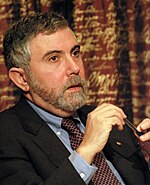 |
پل کروگمن |
 ایالات متحده آمریکا ایالات متحده آمریکا |
“for his analysis of trade patterns and location of economic activity |
| ۲۰۰۹ |
 |
الینور اوستروم |
 ایالات متحده آمریکا ایالات متحده آمریکا |
“for her analysis of economic governance, especially the commons” |
 |
الیور ئی. ویلیامسون |
 ایالات متحده آمریکا ایالات متحده آمریکا |
“for his analysis of economic governance, especially the boundaries of the firm” |
| ۲۰۱۰ |
 |
پیتر ای. دیاموند |
 ایالات متحده آمریکا ایالات متحده آمریکا |
“for their analysis of markets with search frictions“ |
 |
دیل تی. مورتنسن |
 ایالات متحده آمریکا ایالات متحده آمریکا |
 |
کریستوفر ای. پیساریدیس |
 قبرس قبرس |
۲۰۱۱–2016
| سال |
برندگان نوبل اقتصاد |
کشور |
برای |
| ۲۰۱۱ |
 |
توماس جی. سارجنت |
 ایالات متحده آمریکا ایالات متحده آمریکا |
“برای تحقیقات تجربی دربارهٔ متغیرهای علت و معلولی و اثرات آنها در اقتصاد کلان، اقتصاد کلان به بررسی رفتار عمومی بنگاهها و کل نظام اقتصادی میپردازد.” |
 |
کریستوفر ای. سیمز |
 ایالات متحده آمریکا ایالات متحده آمریکا |
| ۲۰۱۲ |
 |
الوین رات |
 ایالات متحده آمریکا ایالات متحده آمریکا |
“بهدلیل مطالعات و پژوهشهای خود در زمینه «تئوری تخصیص پایدار و کاربرد طراحی بازار»” |
 |
لوید شپلی |
 ایالات متحده آمریکا ایالات متحده آمریکا |
| ۲۰۱۳ |
 |
یوجین فاما |
 ایالات متحده آمریکا ایالات متحده آمریکا |
“for their empirical analysis of asset prices.” |
 |
لارس پیتر هانسن |
 |
رابرت جی. شیلر |
| ۲۰۱۴ |
 |
ژان تیرول |
 فرانسه فرانسه |
“for his analysis of market power and regulation”. |
| ۲۰۱۵ |
|
انگس دیتون |
 بریتانیا بریتانیا
 ایالات متحده آمریکا ایالات متحده آمریکا |
“برای تجزیه و تحلیل خود بر روی مصرف، رفاه و فقر.” |
| ۲۰۱۶ |
|
اولیور هارت |
 ایالات متحده آمریکا ایالات متحده آمریکا |
“به خاطر مشارکت ایشان در نظریه قرارداد.” |
 |
بنگت هولمستروم |
 فنلاند فنلاند |
۱۹۶۹–۱۹۸۰ · ۱۹۸۱–۱۹۹۰ · ۱۹۹۱–۲۰۰۰ · ۲۰۰۰–۲۰۱۰ · ۲۰۱۱–۲۰۲۰
بر پایه کشور
بیشتر برندگان از ایالات متحده، و پس از بریتانیا، فرانسه ، نروژ و سوئد هستند. جایزههای اشتراکی به عنوان نیم برای آن کشور محاسبه شدهاست.
 ایالات متحده آمریکا ایالات متحده آمریکا |
۴۷٬۵ |
 بریتانیا بریتانیا |
۸٬۵ |
 نروژ نروژ |
۳ |
 سوئد سوئد |
۲ |
 آلمان آلمان |
۱ |
 فرانسه فرانسه |
۳ |
 هند هند |
۱ |
 اسرائیل اسرائیل |
۱ |
 کانادا کانادا |
۱ |
 هلند هلند |
۱ |
 روسیه روسیه |
۱ |
 قبرس قبرس |
۰٬۵ |
|

























































